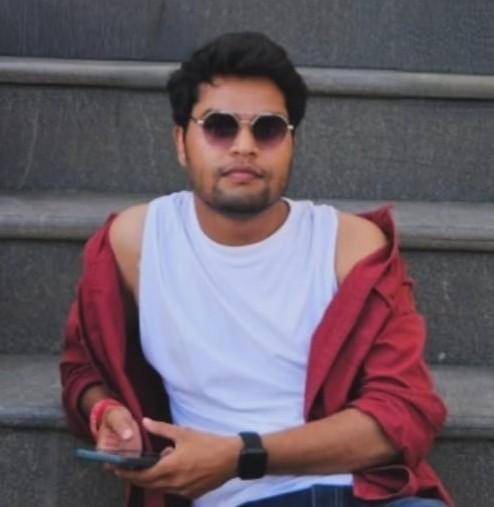Halid Bešlić, the voice that defined generations in Bosnia and Herzegovina and beyond, has died at the age of 72. Known for timeless hits like Miljacka and Prvi Poljubac, Bešlić’s music united the Balkans through its deep emotion and authenticity. His death in Sarajevo’s Clinical Center marks the end of an era, as fans and fellow musicians mourn a true cultural icon whose influence transcended borders and decades.
Halid Bešlić Passes Away at 72: End of a Golden Era in Balkan Music
The world of Balkan music is in mourning following the passing of Halid Bešlić, one of the most iconic folk singers of the region. Bešlić died in Sarajevo’s Clinical Center on October 7, 2025, after a prolonged illness that had kept him away from the stage for months.
The news was confirmed by multiple Bosnian media outlets and quickly spread across social platforms, prompting heartfelt tributes from fans, artists, and political leaders across the Balkans.
A Voice That Defined the Soul of Bosnia
Halid Bešlić wasn’t just a singer — he was a storyteller whose songs mirrored the joys and sorrows of everyday life. His music spoke to millions across Bosnia and Herzegovina, Croatia, Serbia, Montenegro, and beyond.
Born on November 20, 1953, in the small village of Knežina near Sokolac, Bešlić’s humble beginnings shaped his artistic identity. He was known for singing about love, hardship, resilience, and national pride — emotions that resonated deeply in a region marked by both beauty and struggle.
His ability to connect with people from all walks of life made him one of the most universally loved artists in the Balkans.
The Journey from Rural Roots to Global Recognition
Halid Bešlić began his musical career in the late 1970s, but his big break came with the release of his debut album “Sijedi Starac” in 1981. His warm, powerful voice and emotive storytelling instantly captured the hearts of listeners.
Throughout the 1980s and 1990s, Bešlić became a household name. His concerts routinely sold out, and his songs became staples at weddings, radio stations, and cultural gatherings.
Hits such as “Miljacka,” “Prvi Poljubac,” “Štiklom o Kamen,” and “Romanija” became timeless classics, blending folk traditions with modern rhythms.
Even during the political turbulence of the 1990s, Bešlić continued performing, using his art to foster unity and hope.
Health Struggles and the Final Years
Bešlić’s health had been deteriorating in recent years. In 2025, he was hospitalized multiple times in Sarajevo’s Clinical Center, first under nephrology care and later transferred to oncology. Despite the medical complications, he maintained his trademark optimism.
Fans recall that during his last few concerts, Bešlić performed seated and openly spoke about his declining health, thanking audiences for their unwavering support. His emotional resilience in those moments reflected his lifelong connection to the public.
Sadly, his condition worsened in the weeks leading up to his passing. On October 7, 2025, Bešlić died surrounded by family members, marking the end of one of the most celebrated lives in Bosnian music history.
Tributes Pour In from Across the Region
The announcement of his death triggered an outpouring of grief across Bosnia and neighboring countries. Social media was flooded with tributes celebrating his artistry, humility, and kindness.
Bosnian Prime Minister, musicians, and fans described Bešlić as “a national treasure” and “the voice of our people.” Radio stations across the Balkans dedicated entire hours to his greatest hits, while fans gathered in Sarajevo to lay flowers near murals and monuments honoring him.
For many, Halid Bešlić’s songs are woven into personal memories — first loves, weddings, family celebrations, and nostalgic reflections of home.
Halid Bešlić’s Impact on Balkan Culture
Halid Bešlić’s music wasn’t just entertainment — it was cultural identity. His songs often celebrated Bosnia’s natural beauty, traditions, and emotional depth.
He became a symbol of unity during and after the Yugoslav wars, performing for mixed audiences at a time when divisions ran deep. His simple yet profound lyrics reminded people of shared roots and human connection.
Beyond his artistry, Bešlić was known for his philanthropy, supporting young artists and participating in humanitarian efforts throughout his career.
A Discography That Defined Generations
Over four decades, Bešlić released more than a dozen albums, many achieving record-breaking success across the Balkans. Some of his most beloved works include:
- Sijedi Starac (1981)
- Zbogom Noći, Zbogom Zore (1985)
- Romanija (1993)
- Miljacka (2000)
- Trebević (2020)
Each album carried his unmistakable vocal warmth, poetic lyricism, and deep emotional intelligence. His live performances, often filled with laughter and tears, left audiences spellbound.
Funeral and Memorial Plans
While official statements about the funeral are still awaited, it is expected that Halid Bešlić will receive state and cultural honors in Sarajevo. The city’s main concert hall is reportedly preparing a public commemoration ceremony where fans can pay their last respects.
Family members have requested privacy but expressed gratitude for the outpouring of love. As fans gather to celebrate his life, Bešlić’s music continues to echo across homes, radios, and hearts throughout the Balkans.
Remembering the Man Behind the Music
Offstage, Halid Bešlić was known for his humility and humor. Despite his immense fame, he often preferred quiet family life over celebrity attention. Friends describe him as deeply spiritual, loyal, and grounded — qualities that made his music feel genuine.
His personal journey was not without hardship. In 2009, Bešlić survived a near-fatal car accident that left him severely injured. His recovery became a symbol of perseverance, and he later returned to the stage stronger than ever.
That resilience became a defining part of his story — and a reflection of his belief in life’s beauty even amid struggle.
Halid Bešlić’s Legacy: A Voice That Lives Forever
With his passing, the Balkans have lost one of their greatest musical ambassadors. Yet, Halid Bešlić’s influence remains eternal.
His songs continue to be covered by new artists, and his recordings still dominate radio playlists. For many, his music is the soundtrack of a shared past — a reminder of love, nostalgia, and identity that transcends borders and time.
As fans play Miljacka and Prvi Poljubac tonight, one thing is certain: Halid Bešlić may have left this world, but his voice will never fade.
Also Read : Cardi B and Nicki Minaj Feud Reignites: Album Sales, Personal Jabs, and Industry Fallout
FAQs About Halid Bešlić
Q1: Who was Halid Bešlić?
Halid Bešlić was a legendary Bosnian folk and pop-folk singer, widely recognized as one of the greatest voices in Balkan music.
Q2: How old was Halid Bešlić when he died?
He was 72 years old at the time of his death on October 7, 2025.
Q3: What caused Halid Bešlić’s death?
Reports indicate that Bešlić passed away after a long battle with illness. He had been hospitalized in Sarajevo in the months prior to his death.
Q4: What are Halid Bešlić’s most famous songs?
Some of his most iconic hits include Miljacka, Prvi Poljubac, Štiklom o Kamen, Romanija, and Kad Zaigra Srce Od Meraka.
Q5: Will there be a public funeral or memorial?
Yes, according to sources, a public commemoration is expected in Sarajevo, with state and cultural tributes planned to honor his legacy.
Q6: What is Halid Bešlić’s lasting legacy?
His music transcended borders and divisions, symbolizing love, resilience, and the shared spirit of the Balkan people.
Join our WhatsApp channel for more updates and information about celebrities and entertainment.

I’m Atul Kumar, founder of Cine Storytellers and an entertainment creator with 5+ years of experience. I cover films, celebrities, music, and OTT content with a focus on accurate, ethical, and engaging storytelling. My goal is to bring readers trustworthy entertainment news that informs, inspires, and goes beyond gossip.
Discover more from Cine Storytellers
Subscribe to get the latest posts sent to your email.
